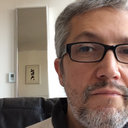Radiofrequency thermal ablation of breast cancer local recurrence: a phase II clinical trial.
Mots clés
Abstrait
BACKGROUND
The role of radiofrequency (RF) ablation to treat local recurrence of breast cancer is unknown.
METHODS
We conducted a two-stage phase II clinical trial. Eligible patients had a histologically confirmed noninflammatory and < or =3 cm ipsilateral breast tumor recurrence. The tumor site was identified by intraoperative sonography. A LeVeen needle electrode (RadioTherapeutics Corp, Mountain View, Calif) was inserted into a single site within the tumor and radiofrequency ablation was performed using a RF-2000 generator (RadioTherapeutics Corp). After completion of radiofrequency, a mastectomy was performed. Conventional staining and nicotinamide adenine dinucleotide-diaphorase (NADH-diaphorase) cell viability staining were performed.
RESULTS
During the first stage, procedures were uneventful. Conventional, cytokeratin, and NADH-diaphorase staining identified persistent viable tumor cells in the RF-ablated region in three patients. This phase II trial was stopped after completion of the first stage because of insufficient efficacy.
CONCLUSIONS
We demonstrate in this study that RF ablation is a potential technique to destroy local recurrence of breast tumors but the technique we tested in this phase II clinical trial had insufficient efficacy to recommend its use in routine.


